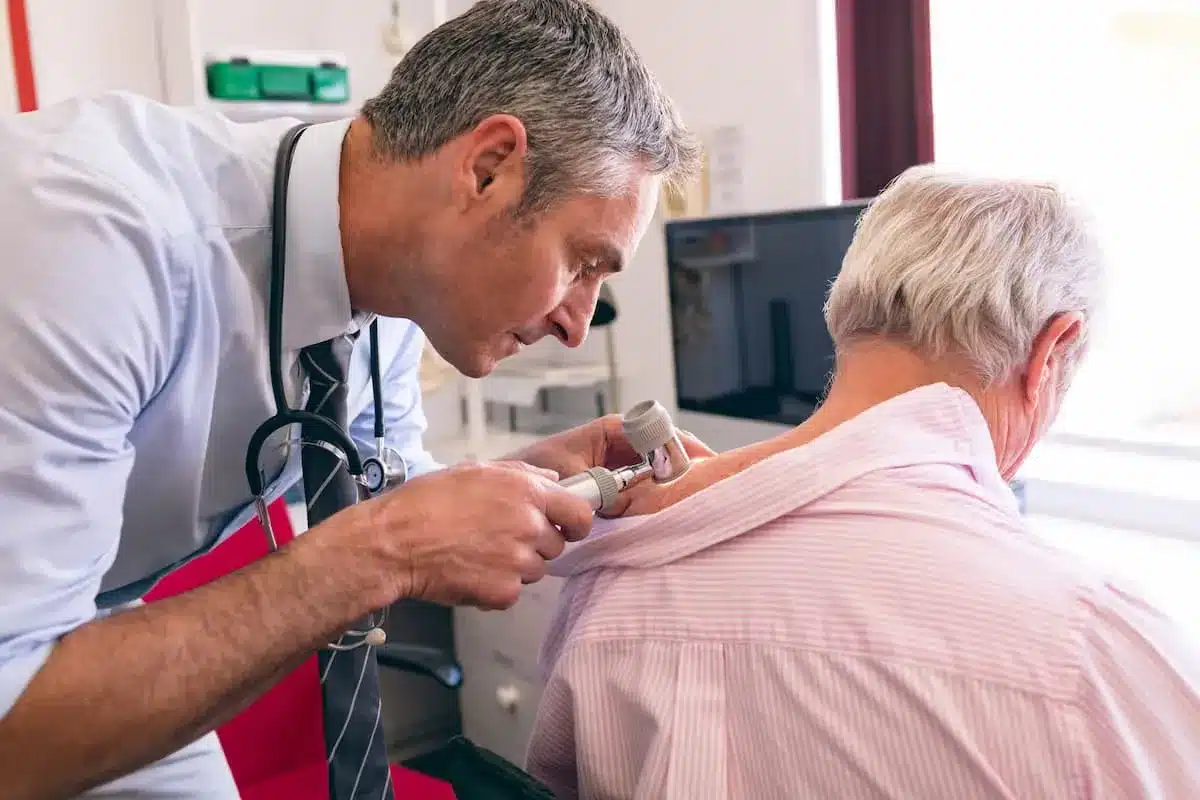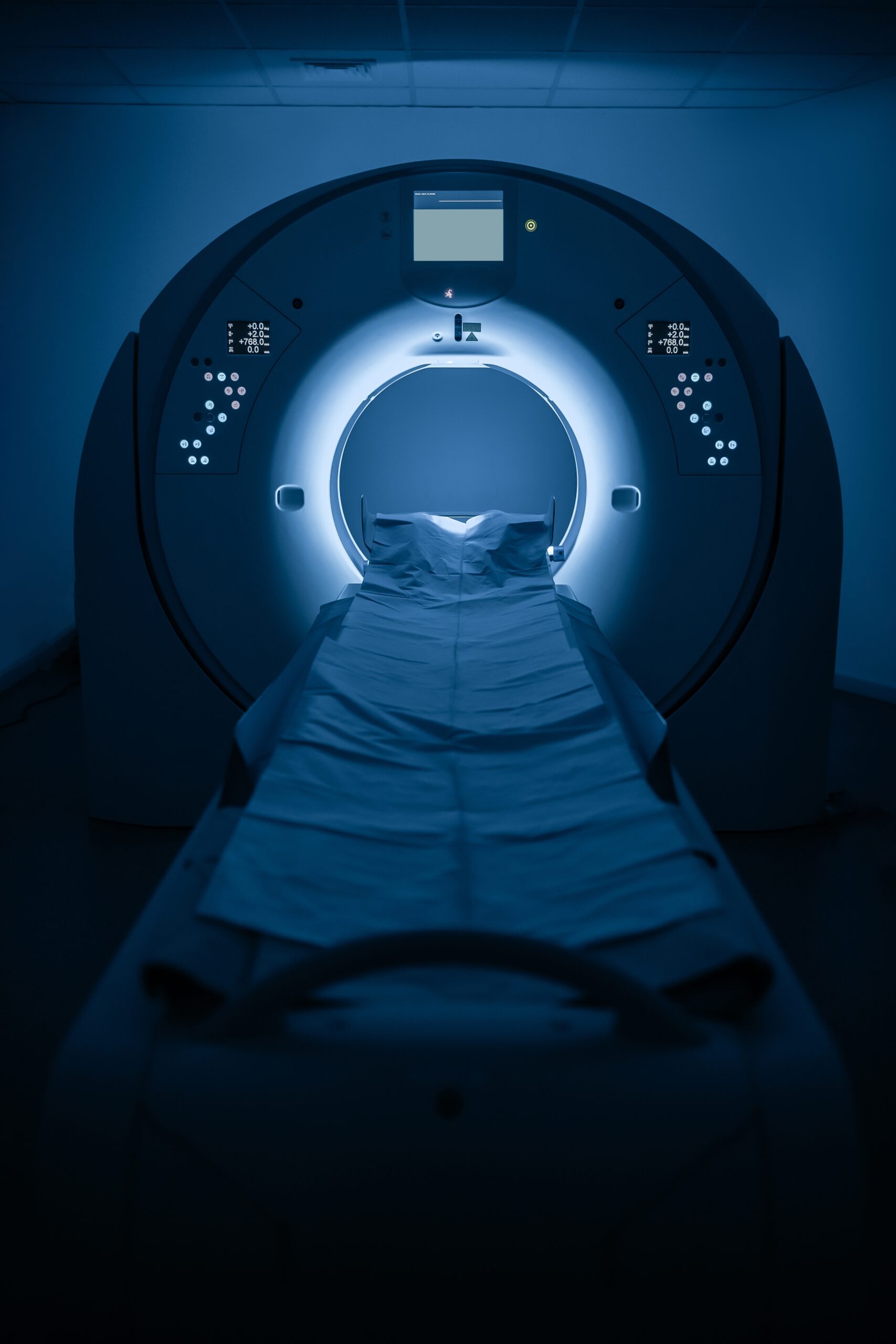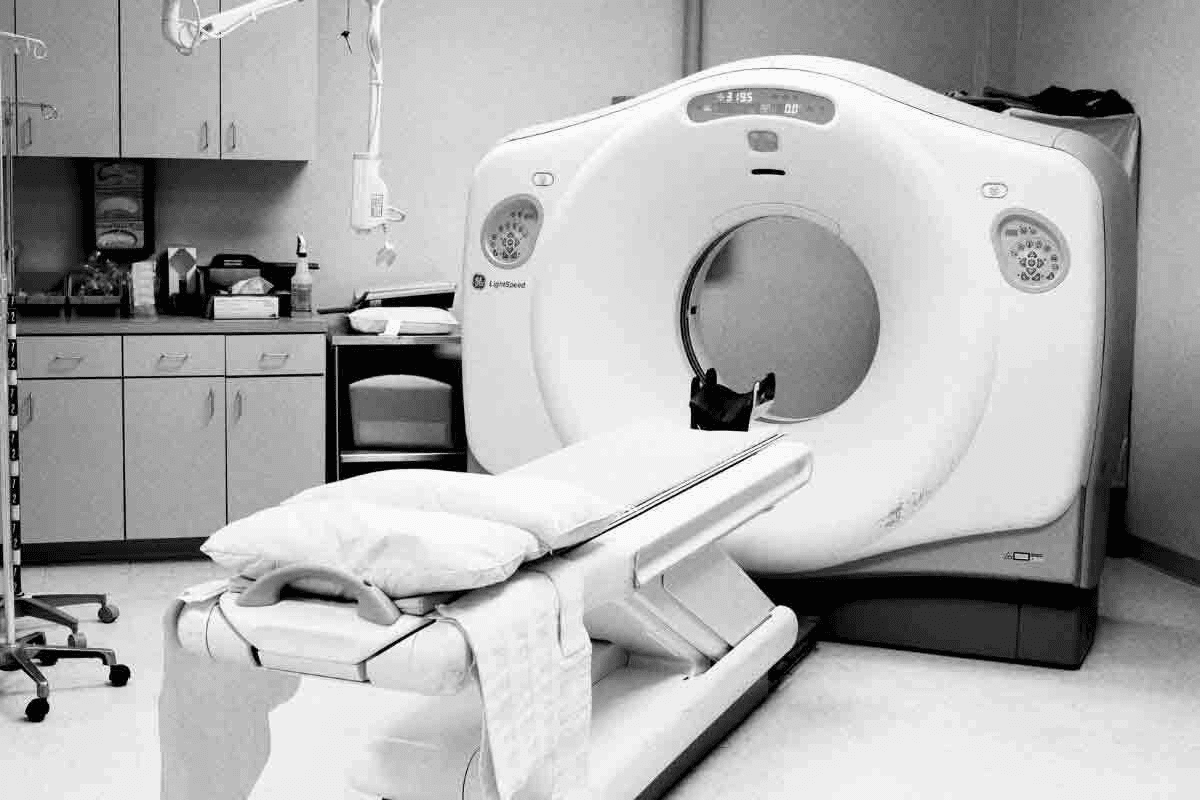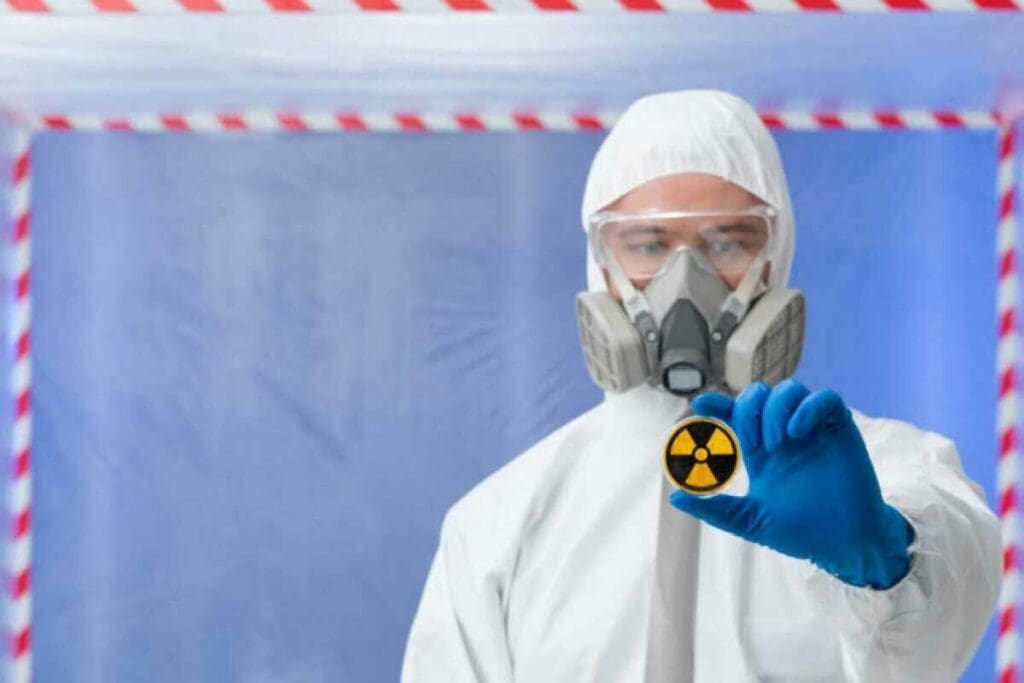
Nuclear radiation is a big risk to human health, often hidden but very dangerous. At Liv Hospital, we take the impact of nuclear radiation seriously. Our team works hard to help those affected by radiation.
Radiation exposure can cause many health problems. This includes acute radiation syndrome and a higher risk of cancer. We will look at the 12 major effects of radiation on human health and body systems. This will help you understand the risks of radiation exposure.
Key Takeaways
- Radiation exposure can cause immediate and long-term health effects.
- The risks associated with radiation exposure are often invisible but potentially devastating.
- Liv Hospital provides world-class care for those affected by radiation.
- Understanding the effects of radiation is key to reducing its risks.
- Our team of experts is committed to patient-focused care.
Understanding Nuclear Radiation and Its Dangers
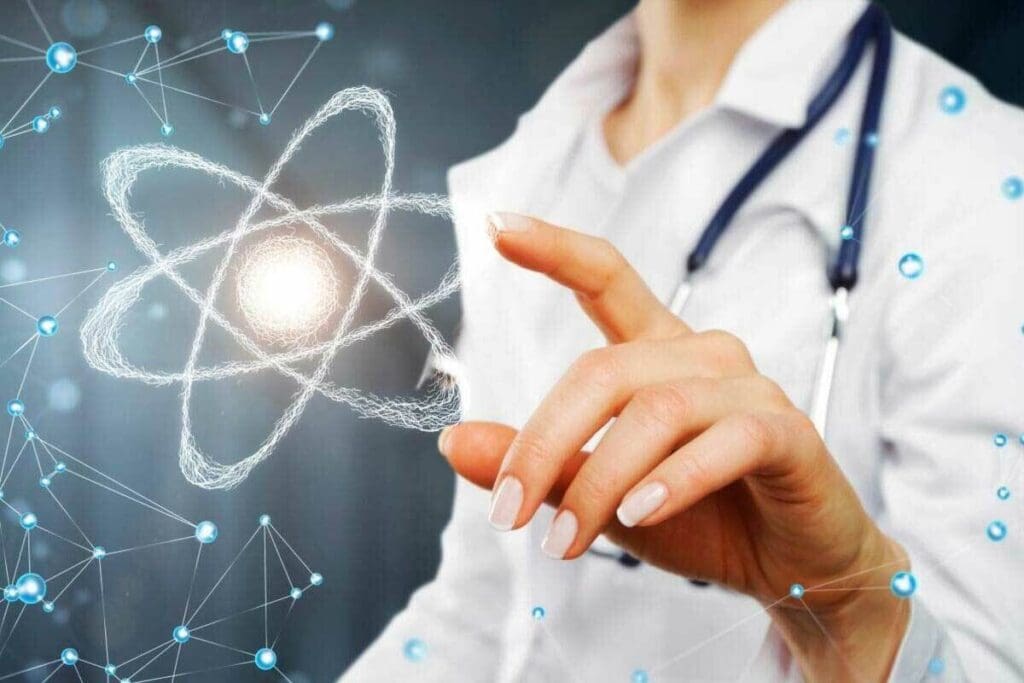
Nuclear radiation is harmful because it has high-energy particles. These particles can mess with our cells and genes. It comes from nuclear reactions, like in power plants or medical tests.
When it hits living tissues, it can damage DNA. This can lead to health problems.
What Makes Nuclear Radiation Harmful to Humans
Nuclear radiation is bad for us because it can go deep into our bodies. It can damage DNA in our cells. This can cause cell death or mutations, leading to cancer or other health issues.
The harm it causes depends on how much and for how long we’re exposed. It also depends on the type of radiation.
The World Health Organization says high doses can cause acute radiation syndrome. This can include nausea, vomiting, and even death.
Types of Radiation and Their Penetration Abilities
There are several types of nuclear radiation. These include alpha, beta, gamma, and neutron radiation. Each type has different abilities to penetrate and health risks.
| Type of Radiation | Penetration Ability | Health Risk |
| Alpha | Low; stopped by skin or paper | High if ingested or inhaled |
| Beta | Moderate; stopped by thin metal or wood | Moderate; can cause skin burns |
| Gamma | High; requires thick, dense materials to stop | High; can penetrate deep into tissues |
| Neutron | High; requires dense materials like water or concrete to stop | High; can cause significant biological damage |
Gamma rays are very penetrating. They can cause a lot of damage to living tissues. For example, gamma rays from a nuclear explosion can produce high-energy electrons.
It’s important to understand the different types of radiation and their effects on health. Knowing how each type works helps us prepare for and handle nuclear emergencies better.
Acute Radiation Syndrome: The Immediate Response
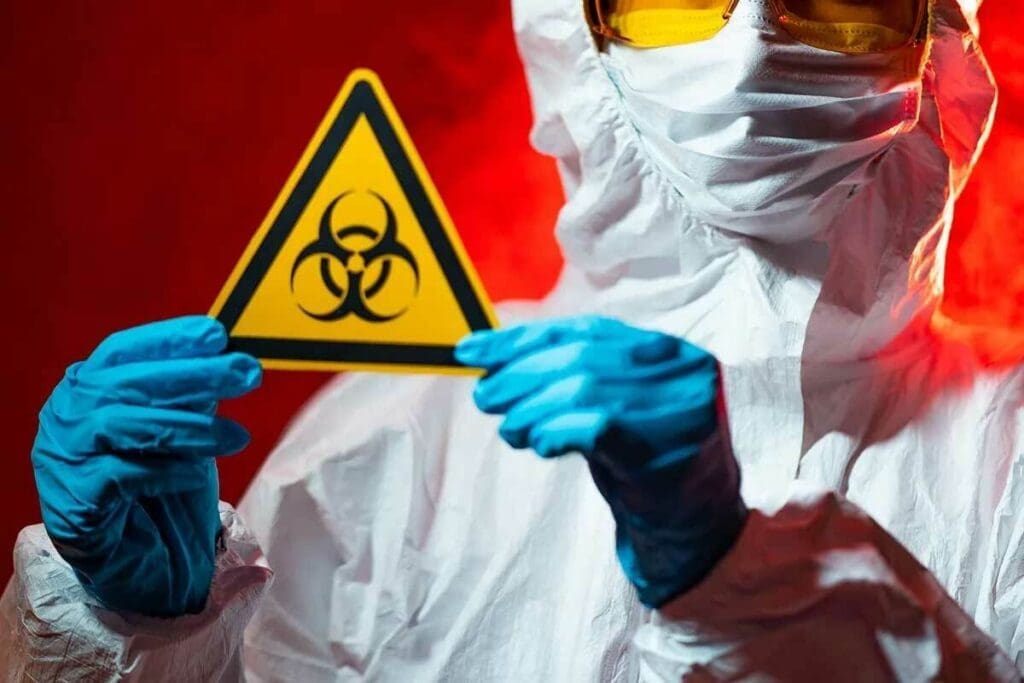
High-dose radiation can cause Acute Radiation Syndrome, a serious health risk. This condition happens when someone gets a lot of ionizing radiation quickly. It has immediate and severe effects.
We will look at the symptoms and how radiation sickness gets worse. We will also see how the dose affects the health risks of high-dose radiation.
Symptoms and Progression of Radiation Sickness
Radiation sickness, or acute radiation syndrome, shows symptoms when a lot of bone marrow or the gut gets irradiated. The symptoms depend on the dose and how long you were exposed.
Even a single high dose can be deadly, like in nuclear disasters. It can weaken the immune system, reduce blood cells, and hurt the gut. Symptoms can get worse fast, appearing in hours or days.
“Radiation sickness is a serious condition that requires immediate medical attention. The severity of the symptoms depends on the dose and duration of radiation exposure.”
Dose-Dependent Effects of Acute Exposure
The effects of acute radiation exposure depend on the dose. The dose is measured in grays (Gy). Higher doses mean more severe symptoms.
| Dose (Gy) | Symptoms | Prognosis |
| 0-1 | Mild symptoms, if any | Survival likely |
| 1-2 | Moderate symptoms, including nausea and fatigue | Survival possible with treatment |
| 2-4 | Severe symptoms, including vomiting and diarrhea | Survival uncertain, even with treatment |
| 4+ | Very severe symptoms, including seizures and coma | Survival unlikely |
The table shows how acute radiation exposure affects symptoms and survival chances. As the dose goes up, symptoms get worse and survival chances go down.
Knowing how acute radiation exposure affects people is key for good medical care and predicting outcomes.
DNA Damage and Cellular Mutations
Radiation can cause serious harm, including DNA damage and cell mutations. Nuclear radiation breaks chemical bonds in cells. It disrupts DNA replication and overwhelms repair systems. We’ll look at how this happens and its effects on health.
How Radiation Breaks Chemical Bonds in DNA
Nuclear radiation can ionize DNA molecules, breaking chemical bonds. This damage can happen directly or through free radicals. When DNA meets radiation, it can lose electrons, causing strand breaks.
Double-strand breaks are very harmful. They can lead to genetic mutations if not fixed.
The process of DNA damage from radiation is complex. It involves radiation interacting with DNA, possibly causing single-strand or double-strand breaks. The cell’s repair ability is key to how radiation exposure affects us.
Overwhelmed Repair Mechanisms and Mutation Formation
Cells have ways to fix DNA damage. But, if the damage is too much, these mechanisms can fail. Mutations are a big concern for health effects, including cancer.
“The risk of cancer from radiation exposure is a major concern, as it can lead to various types of cancer, depending on the dose and duration of exposure.”
International Agency for Research on Cancer
The effects of DNA damage and mutations are serious. Here’s a table showing the health risks of radiation-induced DNA damage:
| Health Effect | Description | Potential Outcome |
| Genetic Mutations | Changes in DNA sequence | Cancer, Genetic Disorders |
| Cell Death | Immediate death of cells | Tissue Damage, Organ Failure |
| Cancer Development | Uncontrolled cell growth | Various Types of Cancer |
In conclusion, the harm caused by nuclear radiation to DNA and cell mutations is key to understanding radiation risks. Knowing these mechanisms helps us see why radiation safety is so important.
Blood and Bone Marrow Deterioration
Nuclear radiation can harm the body, affecting blood and bone marrow. It damages the blood-forming tissues, causing serious health problems.
Radiation can destroy blood cell production. The bone marrow, which makes red and white blood cells and platelets, is very sensitive. High doses of radiation can hurt its ability to make these cells.
Destruction of Blood Cell Production
White blood cell counts drop 15–30 days after radiation. This weakens the immune system, making infections more likely. The impact depends on the dose, with higher doses causing more harm.
Key effects on blood cell production include:
- Reduced white blood cell count, increasing the risk of infections
- Decreased red blood cell count, leading to anemia
- Lower platelet count, resulting in bleeding disorders
Anemia and Bleeding Disorders from Radiation Exposure
Radiation can cause anemia by reducing red blood cells. This makes it hard to breathe and feel weak. It also leads to bleeding problems because the body can’t clot well.
Moderate doses of radiation weaken the immune system. This makes people more vulnerable to infections. It’s important to understand these effects to help those exposed to radiation.
These effects have big implications for health. Knowing about them helps doctors treat people exposed to nuclear radiation better.
Immune System Suppression and Vulnerability
Nuclear radiation can harm the human immune system, making us more likely to get sick. The immune system fights off harmful germs. When it’s weakened, our health can suffer greatly.
Radiation’s Impact on White Blood Cells
White blood cells are key to our immune system, fighting off infections. Radiation can hurt the bone marrow, where these cells are made. This can lead to fewer white blood cells, making us more prone to infections.
“The destruction of white blood cells due to radiation exposure severely impairs the body’s ability to fight off infections, making it a critical concern for individuals exposed to nuclear radiation,” as emphasized by medical professionals.
Increased Susceptibility to Infections
People exposed to nuclear radiation are more likely to get infections. These infections can be mild or very serious. Also, antibiotics might not work as well against infections caused by radiation.
Using plastic isolators can help prevent infections. These tools reduce the chance of coming into contact with harmful germs. This is important for people with weakened immune systems.
It’s vital to understand how nuclear radiation affects our immune system. By knowing the risks, we can take steps to protect those exposed. This helps support their health and well-being.
Gastrointestinal Tract Injuries and Dysfunction
Nuclear radiation can harm the gastrointestinal tract, leading to health problems. This system is key for digestion and nutrient absorption. It’s very sensitive to radiation.
Damage to Rapidly Dividing Intestinal Cells
The intestinal lining has cells that grow fast. This makes it vulnerable to radiation damage. When hit by nuclear radiation, these cells can get hurt badly.
This injury can break down the intestinal barrier. It lets toxins and bacteria into the blood. This can cause serious infections.
Radiation damage to intestinal cells can cause many issues. These include diarrhea, stomach pain, and trouble absorbing nutrients. This can lead to malnutrition.
Digestive Complications Following Radiation Exposure
Radiation can cause digestive problems like nausea, vomiting, and changes in bowel habits. The severity depends on the radiation dose and how long you’re exposed.
People exposed to a lot of nuclear radiation might get gastrointestinal syndrome. This includes severe diarrhea, stomach pain, and fever. It starts two to three days after exposure. It’s important to manage these symptoms to avoid more health problems.
- Severe diarrhea and abdominal pain
- Nausea and vomiting
- Malnutrition due to impaired nutrient absorption
It’s key to understand how nuclear radiation affects the gastrointestinal tract. This knowledge helps doctors give the right care to those exposed to radiation.
The Impact of Nuclear Radiation on Skin and Tissue
Nuclear radiation can cause serious burns and lasting damage to human skin and tissue. When people are exposed, their skin is the first to be affected.
Radiation Burns and Skin Breakdown
Radiation burns, or radiation dermatitis, happen when skin is exposed to ionizing radiation. This can cause mild redness or severe ulcers. The damage depends on how much and for how long the skin is exposed.
Symptoms of radiation burns include:
- Erythema or redness of the skin
- Dry or moist desquamation (peeling of the skin)
- Ulceration in severe cases
- Potential for secondary infections
Long-Term Skin Changes and Wound Healing Issues
Nuclear radiation can cause long-term skin changes. These include scarring, thinning, and visible blood vessels. These changes can lead to chronic skin problems that need ongoing care.
Wound healing is also affected by radiation. It can damage healing cells, leading to slow or poor wound closure. This can raise the risk of infection and more tissue damage.
| Effect | Short-Term Impact | Long-Term Impact |
| Radiation Burns | Pain, redness, blistering | Scarring, skin atrophy |
| Skin Breakdown | Ulceration, risk of infection | Chronic wounds, fibrosis |
| Wound Healing | Delayed healing | Impaired tissue repair |
It’s important to know how nuclear radiation affects skin and tissue. This knowledge helps doctors treat people exposed to radiation better. Early treatment can reduce some of the damage.
Reproductive System Damage and Fertility Issues
The reproductive system is very sensitive to nuclear radiation. This is a big problem for people’s fertility and genetic health. Both men and women can face fertility issues due to this damage.
Nuclear radiation can harm reproductive cells. This can cause mutations and affect the health of future generations. We will look at how it impacts male and female reproductive health and the genetic risks it poses.
Effects on Male Reproductive Health
In men, radiation can lower sperm quality and quantity. The cells that make sperm are very sensitive to radiation. Research shows that radiation can lead to:
- Reduced sperm count
- Decreased sperm motility
- Increased incidence of abnormal sperm morphology
These changes might make men temporarily or permanently unable to have children. The extent of the damage depends on the amount and length of radiation exposure.
Effects on Female Reproductive Health
In women, radiation can harm the ovaries. This can lead to a decrease in ovarian function and even early menopause. If a woman is exposed to radiation while pregnant, it can harm the developing fetus, causing:
- Increased risk of miscarriage
- Fetal malformations
- Growth restriction
The severity of these effects varies based on the radiation dose and when the exposure happens during pregnancy.
Transgenerational Genetic Concerns
One major worry about radiation exposure is the risk of genetic damage being passed on to future generations. Radiation can cause mutations in germ cells, leading to:
- Genetic disorders
- Increased risk of cancer
- Birth defects
It’s important to think about these long-term risks when looking at how nuclear radiation affects reproductive health.
Nervous System Disorders from Radiation Exposure
Radiation can harm the nervous system in many ways. It can cause immediate symptoms or long-term brain damage. The harm depends on how much radiation you get and for how long.
Neurological Symptoms Following High-Dose Exposure
Getting a lot of radiation can hurt your brain right away. A dose of 50 Gy or more to the head can cause serious problems. These include confusion, seizures, and even coma.
The symptoms can vary. But they often include:
- Confusion and disorientation: Patients may feel less aware and confused.
- Seizures: Radiation can irritate the brain, causing seizures.
- Coma: High doses can lead to coma or even death.
Long-Term Cognitive and Neurological Effects
Radiation can also cause long-term brain problems. These effects might not show up right away. But they can develop over time.
Some long-term effects are:
- Cognitive impairments: Radiation can hurt memory, attention, and how fast you process information.
- Neurological deficits: Exposure can cause coordination and balance problems.
- Increased risk of neurodegenerative diseases: Radiation might raise the risk of diseases like Alzheimer’s and Parkinson’s.
It’s important to understand these risks. This helps keep people safe after nuclear radiation exposure. It also helps in finding the right treatments and support.
Cardiovascular Complications and Heart Damage
Radiation from nuclear events can harm the heart, leading to long-term health issues. We look into the heart problems linked to nuclear radiation. This includes how radiation affects the heart and its blood vessels.
Radiation-Induced Heart Disease
Heart disease caused by radiation can lead to serious heart problems. These include heart attacks, weakened heart muscles, and damaged heart valves. Radiation damages heart tissue and blood vessels, causing inflammation and scarring.
Research shows radiation can speed up heart disease. This is a big worry for those who have had radiation therapy near the heart or have been exposed to nuclear radiation.
Vascular Damage and Circulation Problems
Radiation can also harm blood vessels, affecting both big and small ones. It can make blood vessels less flexible and less able to widen. This can reduce blood flow to important organs, causing circulation issues.
Damage to blood vessels can lead to serious circulation problems. It’s important to understand how radiation harms blood vessels to find ways to prevent and treat these issues.
| Dose of Radiation | Risk of Heart Disease | Latency Period |
| Low ( | Mild increase | 10-20 years |
| Moderate (1-5 Gy) | Moderate increase | 5-15 years |
| High (>5 Gy) | Significant increase | 1-10 years |
This table shows how radiation dose and time affect heart disease risk. It also shows how long it may take for these effects to appear.
Cancer Development: The Long-Term Risk
Nuclear radiation exposure can lead to an increased risk of cancer. This risk can show up years after the first exposure. We will look into how radiation affects cancer development over time. We’ll focus on the mechanisms, types of cancer linked to radiation, and what affects the risk.
Mechanisms of Radiation Carcinogenesis
Radiation can damage DNA, causing mutations that might lead to cancer. When radiation hits DNA in cells, it can break DNA strands. This can lead to genetic mutations. If these mutations happen in important genes, it can cause cells to grow uncontrollably, leading to cancer.
Studies have found that ionizing radiation can raise the risk of cancers like leukemia and other blood cancers.
Cancer Types Most Associated with Radiation Exposure
Some cancers are more linked to radiation than others. Leukemia, a blood and bone marrow cancer, is well-known to be caused by radiation. Other cancers, like thyroid, breast, and lung cancer, have also been linked to radiation. But the risk depends on the dose and when you were exposed.
Latency Periods and Risk Factors
The time between radiation exposure and cancer can be long, from years to decades. The risk of radiation-induced cancer depends on the dose, age at exposure, and how susceptible you are. Kids and teens are more at risk because their bodies are growing and they have more time to develop cancer.
Knowing these risks helps us find ways to reduce them. This can be through protecting against radiation or watching for early cancer signs in those exposed.
Conclusion: Radiation Safety and Health Protection Measures
It’s important to know how nuclear radiation affects our health. We’ve seen how it can harm us, affecting our bodies and raising the risk of cancer and other diseases.
To lower the risk of radiation, we can use protective gear, handle it safely, and plan for emergencies. These steps are key to keeping people safe who work with or near radiation. They also help protect the public.
We need to keep learning and teaching about how to prevent radiation exposure. This way, we can make our environment safer for everyone. By taking these steps, we can reduce the dangers of nuclear radiation.
FAQ
What is nuclear radiation and why is it dangerous?
Nuclear radiation is energy from atomic nuclei during certain decays. It’s harmful because it can damage living cells. This can lead to health issues like cancer and genetic mutations.
What are the immediate effects of acute radiation syndrome?
Acute radiation syndrome (ARS) causes nausea, vomiting, and diarrhea. It also affects the bone marrow, lungs, and gut, depending on the dose.
How does radiation cause DNA damage and cellular mutations?
Radiation breaks DNA bonds, causing mutations. If cells can’t fix these, the mutations can become permanent. This can lead to cancer or other health issues.
What are the effects of nuclear radiation on the blood and bone marrow?
Radiation can destroy blood cell production in the bone marrow. This leads to anemia, bleeding disorders, and a higher risk of infections.
How does radiation exposure impact the immune system?
Radiation can weaken the immune system by damaging white blood cells. This makes the body more susceptible to infections and can lead to serious conditions.
What are the gastrointestinal complications following radiation exposure?
Radiation can harm the gut’s cells, causing nausea, vomiting, and diarrhea. It can also lead to serious conditions like intestinal obstruction or perforation.
Can radiation exposure cause long-term skin changes and wound healing issues?
Yes, it can cause radiation burns and skin breakdown. This can lead to chronic wounds or skin ulcers.
How does nuclear radiation affect the reproductive system?
It can damage reproductive cells, causing fertility issues and genetic mutations. This increases the risk of birth defects or miscarriage.
What are the neurological effects of radiation exposure?
High doses can cause confusion, seizures, and coma. Long-term exposure can lead to memory loss and an increased risk of neurodegenerative diseases.
Is there a link between radiation exposure and cancer development?
Yes, radiation exposure is a known cancer risk factor. The risk varies based on dose, duration, and type of radiation, as well as individual factors.
What are the cardiovascular complications associated with radiation exposure?
It can increase the risk of heart disease, including radiation-induced heart disease. It can also cause vascular damage and circulation problems.
How can radiation exposure be minimized or mitigated?
Use protective equipment and follow safety protocols to minimize exposure. Medical treatment, like decontamination, can help mitigate its effects.
What are the dangers of long-term radiation exposure?
Long-term exposure can cause cancer, genetic mutations, and other diseases. The risk depends on the dose, duration, and type of radiation.
Why is radiation safety important?
Radiation safety is key to prevent harm from ionizing radiation. Safety measures and guidelines help minimize risks from radiation exposure.
Reference
US EPA. Radiation Health Effects.


